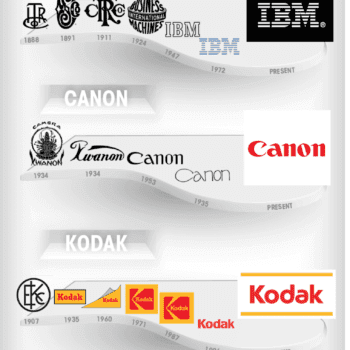When a large corporation puts money into a small startup, huge innovations can result — like the rapid-fire development of a COVID-19 vaccine.
The first two vaccines to win U.S. regulatory approval both came from biotech startups that had received equity investments from pharmaceutical giants:
· In January 2015, Merck took a $50 million stake in Moderna.
· In April 2020, Pfizer invested $113 million in BioNTech.
Experts regard such arrangements as a mutual win, says Francisco Polidoro Jr., associate management professor at Texas McCombs. The established company gets a stake in potentially lucrative technological breakthroughs. The startup gets the resources to turn those breakthroughs into marketable products.
But there’s also a loss, Polidoro finds in new research. Over time, the innovative startup becomes less innovative. It steers away from radical new technologies and toward incremental advances in domains where the established company is already strong.
“They’re warping their technology trajectory,” he says. “They’re diminishing the distinctiveness that made them attractive to investors in the first place. Startups working with incumbents need to remain extra vigilant to preserve a sharp edge”
Evolution of a Startup
Polidoro has long studied parallels between technological innovation and biological evolution. Startups, he says, offer a chance to study why some technologies get selected for further evolution and others fall by the wayside.
One influence on selection, he suspected, was partnerships with large incumbents.
In their early stages, such partnerships can speed an innovation from laboratory to market. BioNTech had a novel technology, using messenger RNA to stimulate the immune system. But it didn’t have the means to develop it quickly into a commercial vaccine. Pfizer provided that needed support.
“It’s insufficient to come up with great innovations,” Polidoro says. “They need to be developed in clinical trials. Then they need to go through regulatory approvals. And all of that has to be done quickly before others with more resources do it first.”
In the long term, however, he feared the relationships with established companies would dull the edges of innovation. Startups would be drawn to the technologies the incumbent knew best and could market most easily.
“Once a firm succeeds in a given technological domain, it tends to keep searching in that domain,” he says. “It’s easier to learn something that builds on knowledge you already have.”
Pulled into Incumbent’s Orbit
To investigate how corporate funding affected startups’ innovation efforts, Polidoro looked at biotech. It’s a sector deeply invested in startups, with established companies pouring $8 billion into new businesses in 2018. It also displayed clear distinctions between old technologies, based on chemical compounds, and new ones, based on molecular biology and genetics.
With Wei Yang, a former graduate student who’s now an assistant professor at George Mason University, he examined 132 biotech startups that had received corporate investments from 1980 to 2013, along with the companies that invested in them.
To measure how innovative a company was, the researchers analyzed its patents. Each patent cites previous patents related to it. Polidoro searched the technological classes of those citations from the International Patent Classification system.
Depending on how many different classes its citations covered, he assigned each patent an originality score from 0 to 1; the more these citations are distributed across a greater number of classes, the higher the score. He then averaged the scores of each company’s patents to derive an originality score for the company.
“Radical innovation combines knowledge from diverse domains,” Polidoro explains.
Overall, he found, startups were much more technologically diverse than incumbents. But after a corporate investment, they became less so. Beforehand, only 15% of startups had originality scores below 0.5 and patents more similar to those of incumbents. Afterwards, 26% fell below the line.
Not only were they less diverse, they overlapped more with the technological domains of the incumbents. Six years after an investment, startups cited 97% more patents in those shared domains.
Polidoro compares the effect to gravity. “The incumbent has a lot of mass, and chances are that a smaller company will fall into its orbit,” he says.
Less Diversity, More Patents
Although startups lost diversity, they gained patents. The startups that shifted the most into incumbents’ domains had nearly six times the patents as those that shifted the least.
But their newer patents increasingly cited their older patents — a sign that they were improving existing technologies rather than inventing new ones.
“The startups become increasingly proficient at building on what they already know,” Polidoro says. “By becoming more similar to the incumbent, they can more easily benefit from the resources of the incumbent.”
While funded startups weren’t making bold technological leaps, neither were incumbents. After making their equity investments, their patent originality scores stayed flat.
“That tells me that they’re not getting all the knowledge return they’re after,” Polidoro says. “If they’re making these investments to get a window on new technologies, that window may narrow after they form the relationship.”
To keep abreast of more radical technologies, he suggests incumbents should keep an eye on other startups, in which they don’t invest.
He warns that an industry can lose some innovativeness, too, when a startup gets tied to an established giant. To balance such losses, it needs competing startups, funded by venture capital rather than corporate capital, to keep pushing technological envelopes.
Polidoro points to the variation among COVID-19 vaccines, which are being built on four different kinds of biological platforms. “That’s the ideal of a market-based ecosystem,” he says. “Different firms have different financial incentives to pursue different technologies.”
Story by Steve Brooks






























